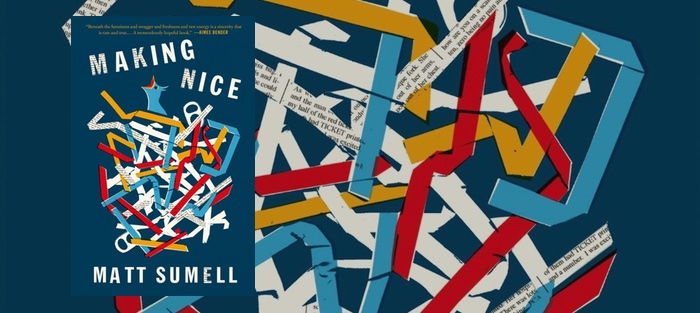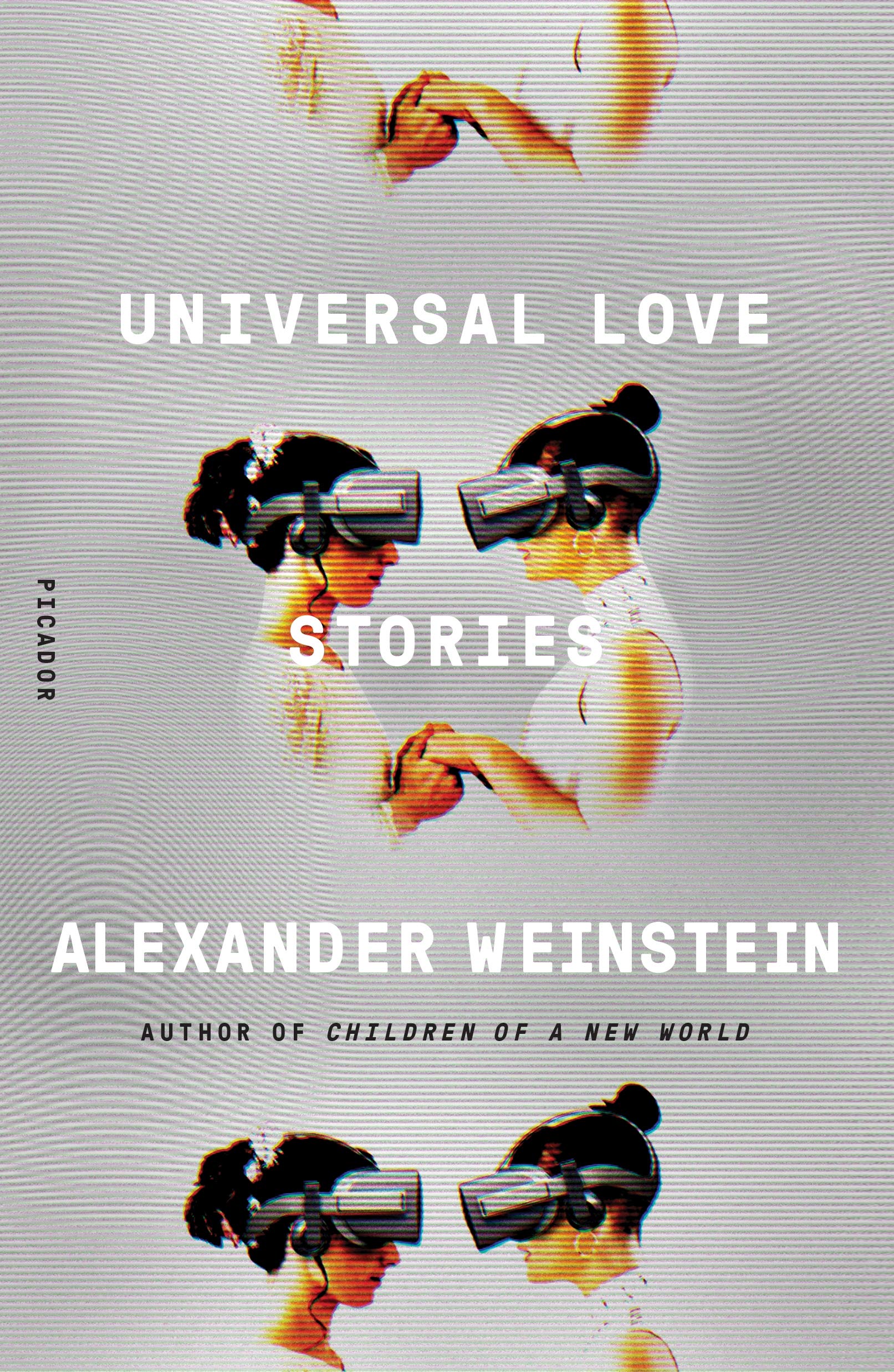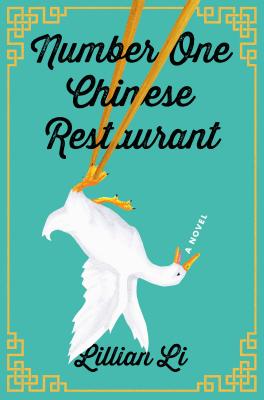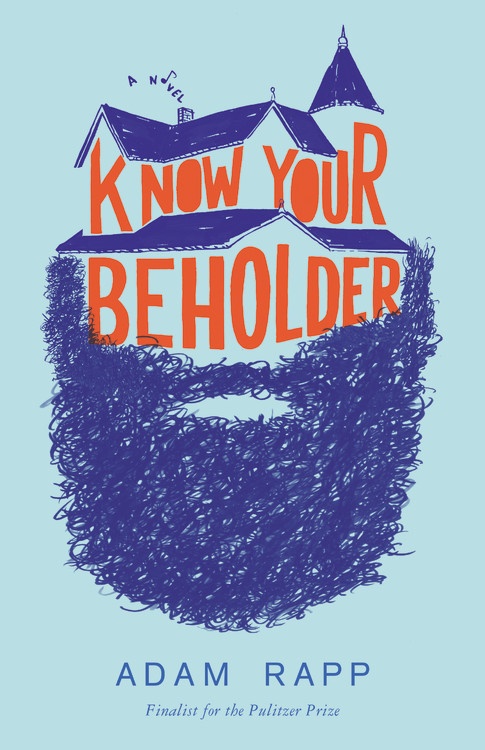After finishing Matt Sumell’s Making Nice (Henry Holt), one thought lingered: It had been a long time since I experienced such a brutally honest narrator.
That said, as I began reading Making Nice, one thought immediately resonated: holy cow. This dude is raw, unabashed, and wholly violent.
Alby, the ringleader for these connected short stories, punches anything in his path, and when he’s not physically punching something, he attempting verbal impact. And if he’s not indulging in one or the other, he’s thinking about physically violent scenarios often associated with inevitable jail time.
Alby is afraid of many aspects of life, such as losing the family he loves, settling down in a romantic relationship, and growing up. Fear blankets hesitation throughout his impulsive anecdotes, and though certain content in this review might make you feel less inclined to consider this book, know these are engaging, laugh-out-loud hilarious, and achingly touching snippets of life when applied contextually. Here is a wonderful glimpse of Alby’s take on hesitation from the short-short story “Inheritance”:
When a red light turns green, all the cars do not move forward at once, instead there is an accumulation of small hesitations between each car. You yourself might be quick, but the farther down the line you are, the more hesitation you inherit.
Alby is not only referencing a cluster of idling cars ready to gain their own momentum, he is also referring to what we do and do not say in moments we consider the lives around us, how meaningful they might register under the skin’s surface, and whether or not we should continue heading in the same direction.
As someone who works a healthy amount of hours at my day (and night) job, I cherish the short story form, often finding myself gravitating toward their succinct deliveries, the way they capture a sentiment or moment in wistful brevity, and how they can reverberate on impact and echo when over. As a writer, I appreciate how short stories capture sentiments in parentheses–that is to say I feel they are not wholly realized, and I often prefer those avenues. I’m delighted to not know every detail of the characters, temperature and setting I experience, as my imagination is often more than happy to expand within the short form’s impermanence.
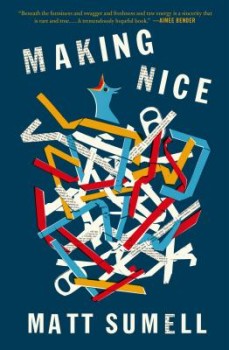 I had previously read some stories from Making Nice in various publications over the years, and I’m delighted Sumell decided to keep staying with Alby’s life–which is in many respects extensions of the author’s personal life, as he suffered through the loss of his mother and how to deal with everything around him. As a main character, few compete with Alby’s recklessness, but what captivates the reader from page one through the end is the narrator’s voice. He resembles a construct of one part Holden Caufield, John Belushi in Animal House, Fuckhead in Jesus’ Son, and Tucker Max. It’s hard not to celebrate Sumell’s attempts to be unforgiving while documenting Alby’s behavior. He punches his sister in the chest, grades a sincere note from his girlfriend when she bares her deepest thoughts and feelings (C+), and calls his only niece Fatlegs. If we were listening to a story told by a friend regarding this sort of behavior, the word asshole would come to mind. Yet the author’s honesty leaves everything on the table through every page turned. Life is brutal. People can be downright physically insensitive to other. As a result, Alby holds the emotions above him with a healthy brick of honesty, ready to throw at anything willing to challenge him. It may be easy to dismiss Alby as a confrontational anti-hero with an inability to share true emotional substance, but his extroverted disposition and bare honesty help savor all the flaws.
I had previously read some stories from Making Nice in various publications over the years, and I’m delighted Sumell decided to keep staying with Alby’s life–which is in many respects extensions of the author’s personal life, as he suffered through the loss of his mother and how to deal with everything around him. As a main character, few compete with Alby’s recklessness, but what captivates the reader from page one through the end is the narrator’s voice. He resembles a construct of one part Holden Caufield, John Belushi in Animal House, Fuckhead in Jesus’ Son, and Tucker Max. It’s hard not to celebrate Sumell’s attempts to be unforgiving while documenting Alby’s behavior. He punches his sister in the chest, grades a sincere note from his girlfriend when she bares her deepest thoughts and feelings (C+), and calls his only niece Fatlegs. If we were listening to a story told by a friend regarding this sort of behavior, the word asshole would come to mind. Yet the author’s honesty leaves everything on the table through every page turned. Life is brutal. People can be downright physically insensitive to other. As a result, Alby holds the emotions above him with a healthy brick of honesty, ready to throw at anything willing to challenge him. It may be easy to dismiss Alby as a confrontational anti-hero with an inability to share true emotional substance, but his extroverted disposition and bare honesty help savor all the flaws.
In “American Ninja,” first published in Esquire, Alby goes off the rails when he pulls over on the highway and sees an invitation for a Mormon open house:
I’d show up at the house and knock on the door and have sex with a hooker. Then I would give a lecture on evolution, do a scientific experiment, accuse them of mental imperialism, and kill everyone there. I would punch noses and poke eyes out and smash teeth out of skulls. I’d grab everyday objects in the room and throw them at faces, pinch ladies’ asses, and shove a small person into something sharp. I’d duck and weave and block slow punches, dodge lunges, light fires, insult children and mustaches.
Physical violence is on every page. One cannot escape it as long as Alby narrates. And yet he’s just as much a victim as he is the instigator. In “Their Appointed Rounds,” Sumell aptly demonstrates how physical violence can connect people. Alby recognizes Donny, the local mailman and someone Alby has known since childhood, drunk and unconscious outside their local bar. When younger, Donny was the kid who punched people (including Alby) for no apparent reason–Alby plays Good Samaritan and manages to give Donny a lift home so he can “Get his mailman rest in his mailman bed.” The story ends in blinding karmic humor. If you have ever laughed out loud from an Itchy and Scratchy cartoon, you are going to cherish these stories.
As the stories connect, unfold and render, Sumell bridges Alby’s physical transgressions through sympathetic moments. Every time we feel inclined to judge or dismiss Alby as hopeless, something touching is revealed. The more we peer into Alby’s destructive tendencies, there are sign of how he considers the fragility in other living things. Alby wields an unspoken kinship with animals, or his feelings toward animals, and though it remains unspoken, we begin to understand he might relate more to animals than humans, as he clearly wields difficulty communicating. After suffering through the despair of losing his dog, Alby doesn’t relax until they are later together in a boat, no one else around but unrecognizable bright green aquatic sea life, ocean and night sky, and only there he laughs out loud and refers to his dog as “buddy.”
Overall, I have to credit the way Sumell doesn’t waste words, a testament to his short story deftness. The sentences are unyielding, pushing the characters, anchored by Alby’s thuggish and compassionate acts. It’s simultaneously economical and progressive, like attending a stranger’s barbecue and finding the snack table holding eight different bowls of your favorite brands of potato chips.
We don’t have fully aligned answers for how and why we act the way we do as human beings, but when we find those delicate moments capable of silencing so much noise in the world, we cling to them for life. Short stories like these rarely come around, so I look forward to Sumell’s future in writing. He knows how to bring truth to fiction, as in a recent interview he recalled a philosophy from his MFA program: “Use what hurts.” It’s refreshing to have a voice–albeit a highly destructive one–remind us we have multiplicities to consider. We are never fully revealed to others; in public, in private and, thankfully, in fiction.

